Daniel Antopolsky: The missing man of country
- Published
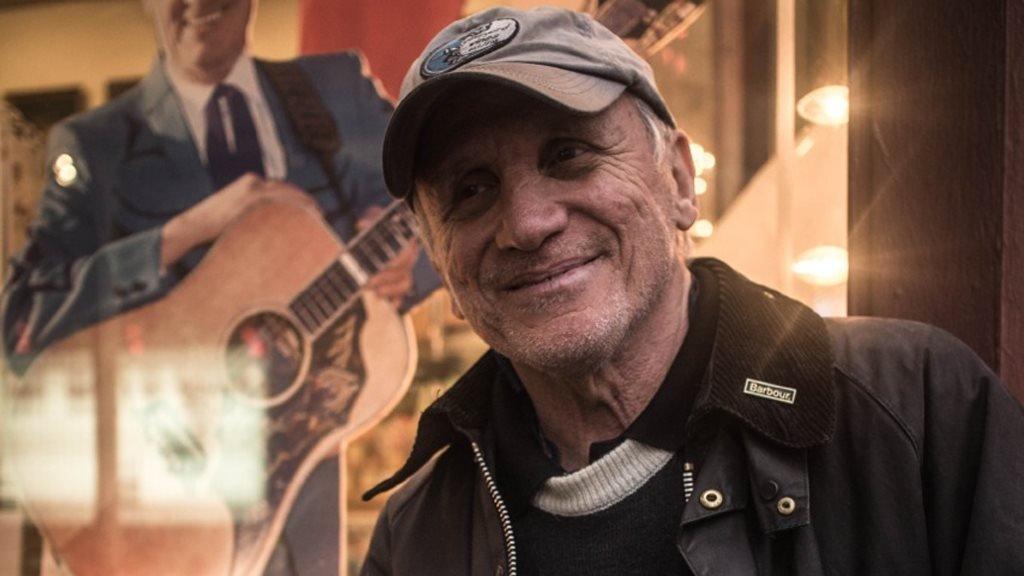
Daniel Antopolsky: "I feel like I haven't paid my dues."
In 2013, Daniel Antopolsky travelled to Nashville to record his first album. He was four decades late.
The musician had been stockpiling songs on his farm in Bordeaux, France, since the 1970s. They were written late at night, long after his family (and his chickens) were asleep. Altogether, he has more than 400 of them.
But it could have turned out very differently.
In his youth Antopolsky was ensconced in the "outlaw country" movement - Nashville's rebellious offspring, which embraced the long hair and gritty aesthetics of Southern rock.
He was slowly making headway when his friend, country singer Townes Van Zandt, overdosed on heroin in 1972.
Antopolsky saved his life that night, driving him to hospital for treatment - but he was spooked enough to move half-way across the world to avoid a similar fate.
"The drug scene was just what you call horrible," he says.
"I did all kind of drugs, too, but I didn't go the limit because I always had a terrible fear of needles.
"Maybe that's why I can't remember songs any more. The only songs I can sing by heart are from 1971."
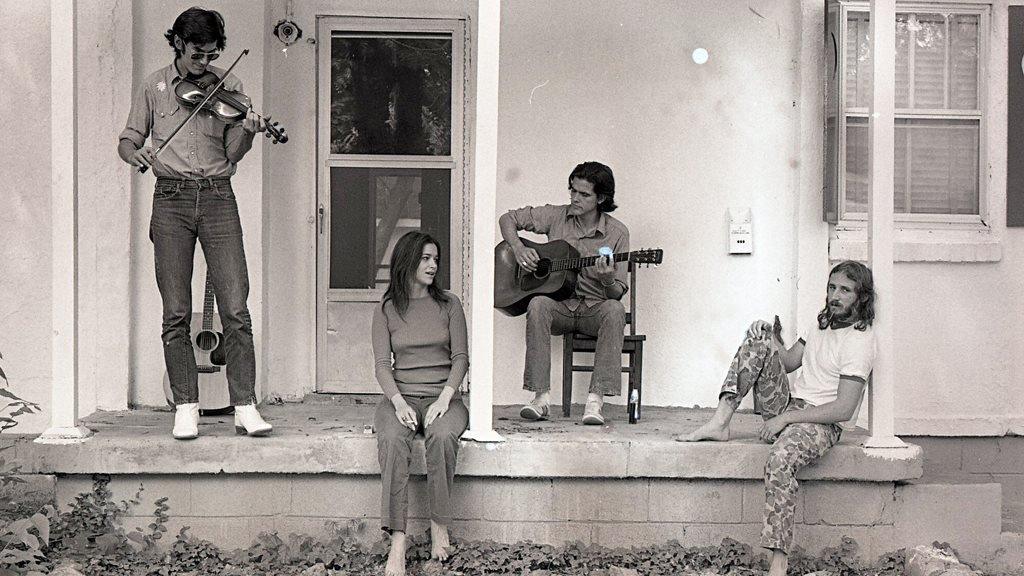
Townes Van Zandt (far left) and Daniel Antopolsky (far right) with Susanna and Guy Clark in 1972
Settling in France, Antopolsky watched Van Zandt and other friends become famous from afar, always wondering what might have been.
"All those years, whenever I had a good song and didn't get to share it with anybody, that brought about a little suffering," he says.
"But I've been very blessed. I'm so happy with my wife and living on the farm. I just went and bought a bunch of vegetables to plant."
The original Lefty
Antopolsky was born 70 years ago in Augusta, Georgia. His mother died when he was young, and his earliest memories are of his nanny, Frances, "a wonderful African-American lady" who was a deacon in the local church.
"We would listen to gospel music and watch soap operas and she would tell me the greatest old stories," he explains in his raspy Southern drawl.
He fell in love with "all the great blues players" of the deep South, and learned harmonies from a singer in his synagogue, who could make his voice "do flips off the high dive".
After graduating from the University of Georgia with a degree in public relations, he met Townes Van Zandt and joined him on the road.
And he was the only other musician present when, in 1971, Van Zandt wrote his signature song, Pancho And Lefty, external.
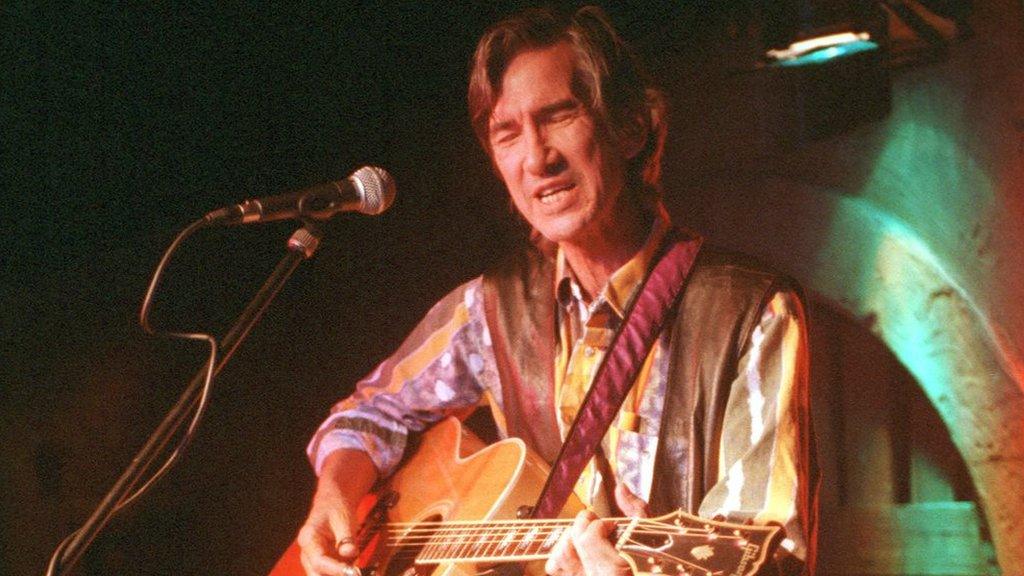
Townes Van Zandt went on to become one of the most influential, if not commercially successful, country writers of the 70s
The two musicians were stranded in a motel after an evangelical rally spilled onto the streets of Dallas, closing the roads.
"It was like a big shindig and we couldn't get out," says Antopolsky. "So Townes and I decided, each of us, to write a song.
"He stayed inside and I went out under a big oak tree and we said we'd come back in half an hour and we'd sing each other our songs.
"I don't know who sang first, but his song was Pancho And Lefty."
Later made famous by Merle Haggard and Willie Nelson, the song is loosely based on the story of Mexican revolutionary Pancho Villa - but Lefty, his mysterious compadre, was supposedly inspired by Antopolsky.
The clue comes in the lyric: "The day they laid poor Pancho low, Lefty split for Ohio / Where he got the bread to go, there ain't nobody knows."
Apparently Antopolsky, who played left-handed, was notorious for having a steady flow of cash despite the sporadic income of the touring life.
"My father had died when I was 17, so I had some social security money," he says. "I bought an old Volkswagen van, and gas was only 20 cents a gallon, so I started travelling around America."
But he's sceptical about his influence on Van Zandt's song.
"I don't know for sure," he says. "I can't put thoughts in his mouth. I never got to talk to him too much about that."
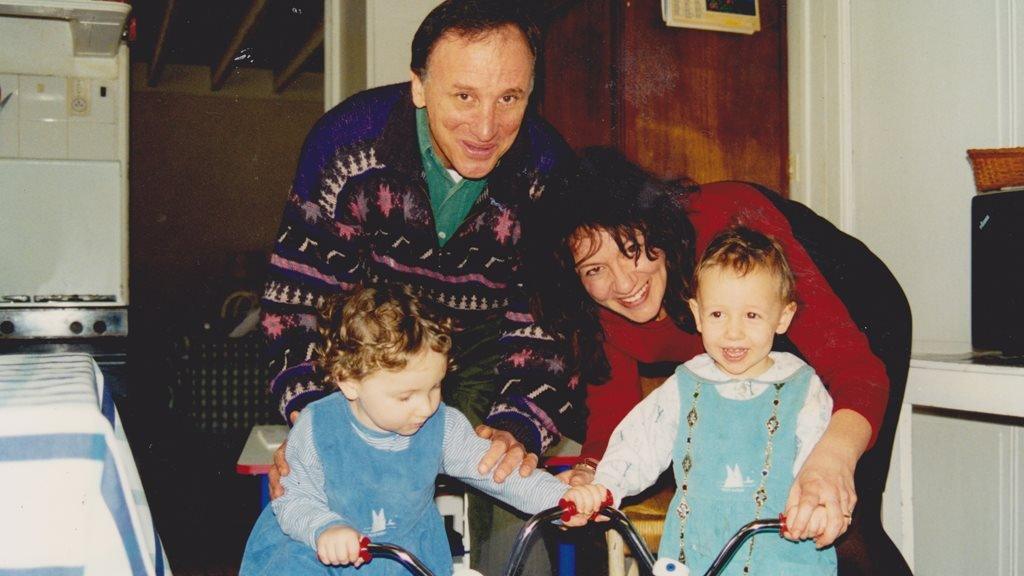
Antopolsky had put his music days behind him, setting up home with his wife and twin daughters in France
The song Antopolsky wrote that day in Dallas was called Sweet Lovin' Music.
"Townes said, 'Hey, that's a pretty good song. If you ever get an album, why don't you name it Sweet Lovin' Music?'"
And that's exactly what happened... 44 years later.
With echoes of Sixto Rodriguez and Seasick Steve, who both got a second shot at fame later in life, Antopolsky's music was rediscovered thanks to the enthusiasm of a stranger - Jason Ressler, a film producer who met the singer through a mutual friend and fell in love with his songs.
"His music is still wild and soulful," Ressler enthuses. "It's the kind of old-style storytelling so many of the younger country artists are trying to emulate today."
Ressler took the musician under his wing, introducing him to Grammy-nominated producer Gary Gold (Smokey Robinson, Bonnie Raitt), who put together recording sessions for that debut album.
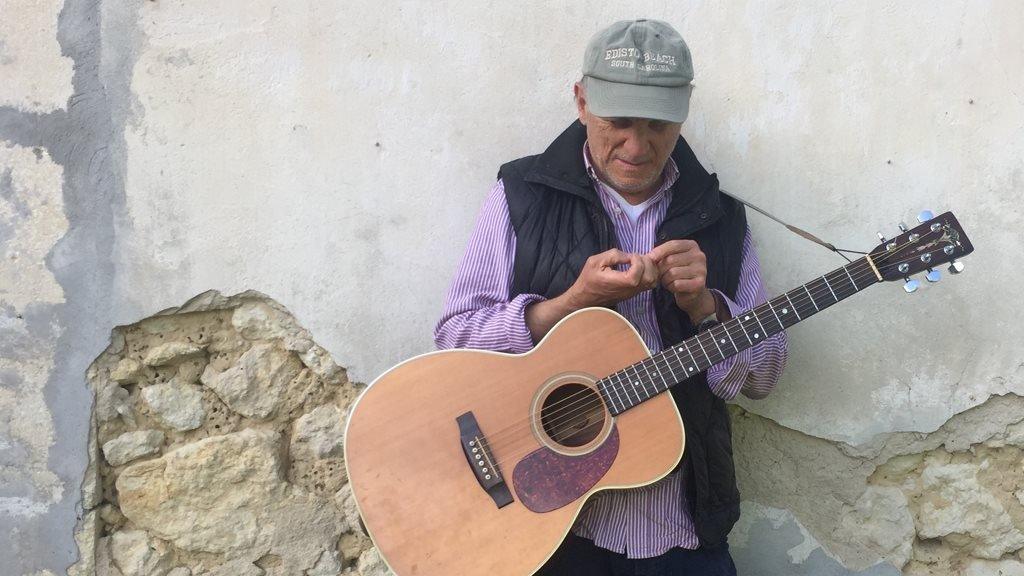
Daniel Antopolsky: "Maybe I've paid my dues by writing up in a little room, away from everybody."
Despite fulfilling a life-long ambition, Antopolsky was caught off-guard when he entered the studio.
"You're supposed to put things on your head - headphones or earphones or whatever you call those things - and then you're supposed to sing.
"I've never done that. I sing just like cowboys round the campfire, and nobody ever hears it again."
Nonetheless, the resulting album is honest, optimistic and funny.
"I've spent years raising chickens," he sings on a song titled, appropriately enough, Chickens, external. "I could never eat 'em, cause I give 'em all names."
The song then names every chicken the singer has ever owned. (The album version is an edit, he notes, as "the long version's got 108 verses!")
But the Nashville recording was too polished for Antopolsky. "I mean, I'm the least polished person in the world," so last year, Gold flew out to France and recorded the singer in the 16th Century property where his songs came to life.
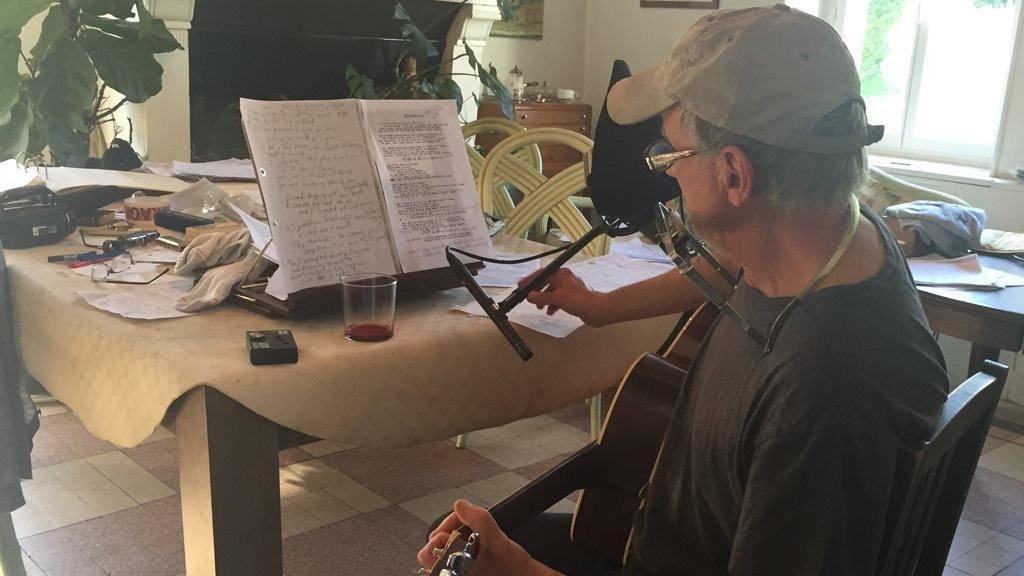
The singer made his second and third albums at home, recording songs directly from his notebooks
"I'd jump off the tractor and write a line on a cardboard box," says the singer of his writing process. "If I wrote a song about a bird, it was the bird I saw right in front of my eyes."
Together, Gold and Antopolsky laid down enough tracks for two albums - Acoustic Outlaw, Vol 1 and 2.
The rustic simplicity of the recordings captures the singer's genial, somewhat eccentric character. You could be sitting next to him on the farm, as he strums songs with titles like Better Than Whiskey, external or Don't Go Pokin' In The Okefenokee, external.
Now, with three albums under his belt, the singer is glad to have finally got some music into the world.
"I felt like I hadn't paid my dues," he muses. "So it's been a dream. But is it a good dream? I don't know.
"Will it help anybody? Will it be something nice to share with people? Will it do any good?"
It becomes clear he's torn between music and the life he's built in France (we speak on the day after his 28th wedding anniversary).
"When I'm out in the woods, it's completely introverted. Then all of a sudden you're faced with singing in front of people, or marketing yourself and I just don't know how to do that.
"I'm almost 70 - so why get too uncomfortable?"
After all these years, maybe having a permanent document of the songs is enough?
"I've got to keep writing because that's about all I can do," he says. "That's about what I have. Otherwise I'm just a person like everyone else."

Follow us on Facebook, external, on Twitter @BBCNewsEnts, external, or on Instagram at bbcnewsents, external. If you have a story suggestion email entertainment.news@bbc.co.uk, external.
